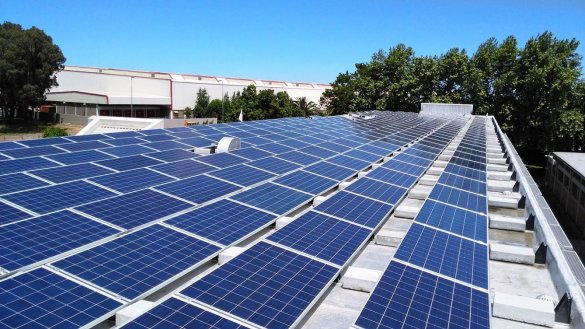As part of the Energy Security Game Changer, we hosted our first workshop with the CTFL industry.
One of the targets of the Energy Security Game Changer (ESGC) is to reduce the industrial sector’s energy demand from Eskom by 10% by 2020 to ensure economic growth in the Western Cape. To this end, numerous companies are being approached in the clothing, textile, footwear and leather (CTFL) industry; food and beverages industry; and the paper, pulp and (plastic) packaging industries of the Western Cape.
On Friday, 28 October 2016, we hosted our first workshop with the CTFL industry. The workshop was hosted at the Durbanville Conference Centre and attended by our partners from GreenCape and the National Cleaner Production Centre (NCPC); as well as industry representatives. The intentional move away from a conventional workshop format enabled participants to actively engage with the energy status of their companies. The design created opportunities for the following:
- Groups comprised of members offering services and those who needed them to work together.
- A space where the economic, logistical and other concerns industry had regarding transitioning to an alternative and low carbon future could be addressed within smaller, open and responsive groups. These concerns were then surprisingly addressed by companies who had already tackled or addressed them, with the makeup of the groups comprising industrial companies of varying levels of expertise and understanding.
- To engage with a case study which was adopted as their own, in order to ‘fix’ it by realising all the resources available to them and by working together with all sectors present. The case study company was modelled to represent the general machinery, and operating procedures and outputs that most of the attending companies could identify with. The processes for intervention were then presented to the room.
- The given case study was based on an actual company, ACA Threads, a Cape Town-based sewing threads manufacturer and supplier. Chris Handt, their Operations Manager, was a knowledgeable and enthusiastic presenter who revealed to the groups the real interventions, struggles, and successes of the company’s transition. Attendees were given the opportunity to compare their own suggested solutions with the real-world interventions, to ask questions, and see what was really possible in this space.
ACA Threads has saved almost R500 000 a year from installing a 131 kW rooftop photovoltaic plant and adapting its municipal tariff structure alone. Other interventions to save energy included the installation of electricity meters per department and the active monitoring and analysis of this data; installation of a variable speed drive compressor; and making use of Eskom’s now-expired rebate programme for LED lighting. An extensive heat recovery project has also resulted in less energy use and considerable savings.
Beyond energy, ACA Threads has also been proactive in trying to reduce its use of heavy fuel oil (HFO) and has succeeded in dropping the amount of HFO used per kilogram of thread dyed from 0,48 litres to 0,3 litres, achieving R300 000 saving a year since 2012! Considering the country’s water crisis, the company has reduced their water usage per kilogram of thread dyed by a whopping 66%, and they didn’t stop there! Since 2001, ACA Threads has reduced its waste to landfill by 96%. To this end, they have saved R735 000 in the past four years through their creative recycling efforts.
In future, we hope to incorporate these case study discussions with a site visit, which will give companies the holistic overview required to inspire them to make the first step. If you are in the CTFL, food and beverages, or paper, pulp, packaging and plastic industries, or know of anyone involved in these industries, please do contact us. How much have you lost to date by not becoming energy efficient?

